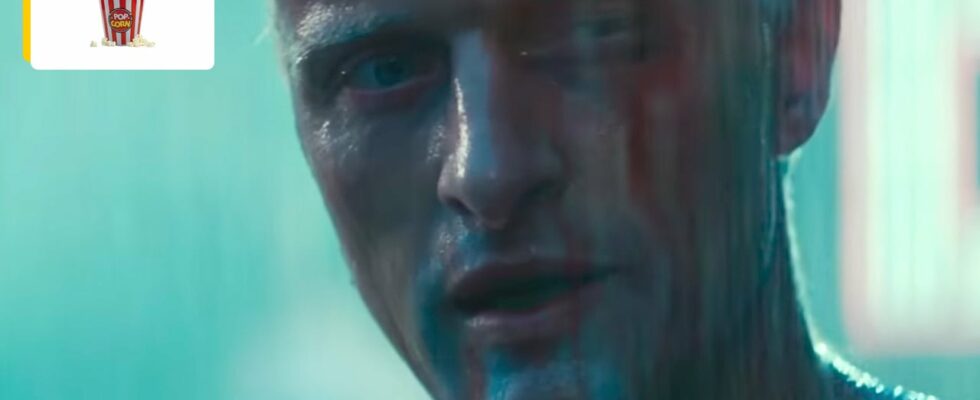Rediscover how Rutger Hauer participated in the creation of his legendary monologue in “Blade Runner”…
Despite a storied career, the late Rutger Hauer will probably always be remembered for his 50-second, 42-word monologue he delivered on screen in 1982, while playing the famous replicant, Roy Batty, in the Ridley Scott’s iconic Blade Runner.
Delivered in its final moments under the stunned gaze of Rick Deckard (Harrison Ford), the monologue (below) has gone down in history as one of the most moving tirades in cinema and it is the actor himself- even, the night before filming, which by cutting parts of the original script and adding a poignant final sentence which is at the origin.
Here is the tirade in question:
“I have seen things that you humans could not believe… Great warships on fire, rising from the shoulder of Orion… I have seen fabulous rays, C-rays shining in the shadow of the Tannhäuser Gate… All these moments will be lost in oblivion, like tears in the rain. It is time to die.”
Warner Bros.
In an old interview (via All The Right Movies on Tears in rain monologue” or “C-Beams Speech”).
“The dove was my idea. And the text was a page long and very complicated. Lots of words. I just thought we’d seen five deaths in operatic style, with a lot of pathos, and I thought, ‘now we have to be quick.’ The batteries are empty, bam, it’s over. Let’s not overdo it.”
He reworks the text himself
Therefore Rutger Hauer decided to rework the script the day before filming, eliminating much of the original speech to keep only the essentials and adding one last sentence – the “tears in the rain” line that truly made the scene perfect.
“The day before, I had compressed it a little and this sentence was the big ending. I suggested it to Ridley and he agreed to do it that way. […] We filmed [la scène] with and without doves. All the scenes where I have a dove were shot in two days because he wasn’t sure, and neither was I. The idea was that when the soul goes, something must go. This is ridiculous, of course, because when a machine dies, nothing flies away.”
The actor then moved on to talk about the trickery used on screen, particularly in this scene, and how the audience lets themselves be fooled for the love of cinema.
“What I like most about films is that you know you’re being had. Just like in this scene. And yet, you have no problem accepting it. I find this beautiful. […] This keeps the audience a little more engaged. I find that interesting.”
Discover his interview in original version below:
A freedom offered to all the actors in the film
In another interview with Radio Times in 2017, Rutger Hauer had also mentioned the poetry of the text and the freedom that Ridley Scott gave to the actors on set.
“I kept two lines because I found them poetic. I thought they belonged to this character, because somewhere in his digital head he has poetry and knows what it is. He feels it! And while his batteries are working, he finds both lines.”
He added : “Ridley gave me complete freedom, because he wanted it to be a character-driven story. He had never made a character-driven film”, explained the actor. “He said, ‘That’s what I want to do: bring me everything you can come up with, and I’ll do it if I like it.’”
Rumor has it that on the day of filming, crew members clapped and cried once the scene was over. In any case, the fans shed tears.
Rediscover Rutger Hauer’s famous tirade in Blade Runner (1982) below:
